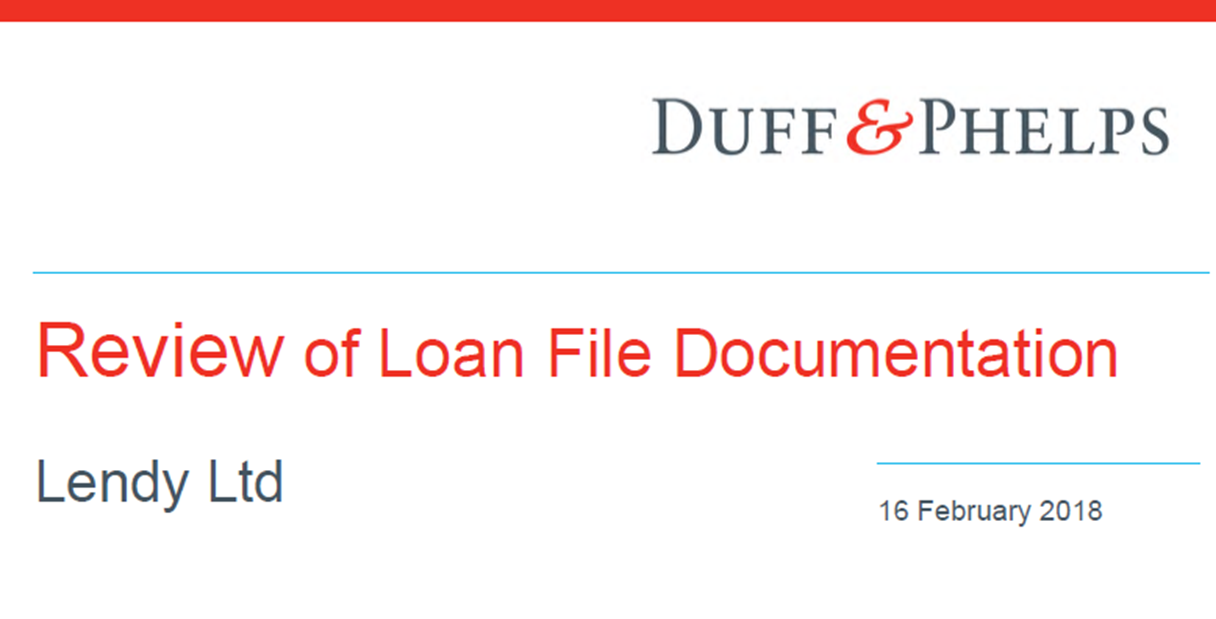A review of the Lendy loan book by insolvency experts Duff and Phelps, published in February 2018 shortly after the FCA found “vital” failures, has revealed a smorgasbord of weaknesses at the now insolvent peer-to-peer lending firm, with members of the public set to lose millions.
The confidential document, which says it “must not be made available, copied or otherwise quoted or referred to in whole or in part in any way“, is being exclusively reported by the mouseinthecourt as part of our ongoing investigation into the FCA’s role in regulating the so-called peer-to-peer lending industry.
Specifically what was known by the city regulator and when.
We have previously exclusively reported that a confidential 2017 FCA report revealed a catalogue of concerns at the company.
This led to a visit by the FCA to the firms offices in early October 2017.
Following this visit, during which a sample of loans were analysed, a senior associate at the FCA ordered a loan book review in 2017 after identifying “vital” failures.
The FCA demanded that the peer-to-peer lending company carry out “an analysis of the current loan portfolio … to assess the accuracy of information presented to lenders at the time of loan origination and to identify any instances of post-drawdown default events and/or receipt of information likely to have a material impact on the loan.”
The 29-page-report was produced by insolvency experts Duff & Phelps, now known as Kroll, and is dated 16th February 2018.
Five months after the date of this report the FCA gave the firm the ultimate seal of approval in the form of full authorisation.
Lord Myners, the former City minister, is quoted in the FT as having said that the FCA’s authorisation of Lendy gave it “a sense of regulatory approval and endorsement, which encouraged people to feel they had been vetted”.
Fifteen months after the date of this damning report the FCA finally pulled the plug on the platform. At the date of collapse the loan book had a total value of £152m.
Please donate to the Cheese Fund to support crowd-funded journalism of the P2P sector.
Reporting by Daniel Cloake.
We’re told that “two consultants with subject matter expertise and experience of conducting comparable reviews and overseen by a Managing Director” conducted the review of 82 lending files made up of 101 individual loans. The cost of the report is understood to have been £45k.

The review commenced on 6th November 2017 and concluded on 19th January 2018. The existence of the review was kept secret from the members of the public who had invested using the platform.
Limitations included a statement saying that Duff & Phelps “have not sought to identify whether specific investors have suffered a detriment as a result of any actions or inactions by Lendy” or “whether any specific lending files should form part of any subsequent remediation exercise“.
Findings – Poor record keeping
The author of the report explains that FCA rules “require firms to keep orderly records of its business and internal organisation“.
We’re told “Lendy uses Dropbox to store its lending files centrally” and that there is a dedicated folder for e-mails. ”However, the content of email folders within a lending file is reliant on individual staff sweeping up emails from their individual email accounts and storing them on Dropbox. From the status of many of the review files it was evident that this had not been done routinely.“
It’s said that “as a result of emails correspondence not being up to date and unstructured, [this] meant that understanding the chronology of events on a file was challenging“.
It was also “noted that Lendy’s staff routinely spoke to relevant parties (e.g. brokers) over the phone, but record no phone notes. As such, important information arising from these calls is lost.”
“We believe there is significant scope for Lendy to improve how it retains information on its lending files” concluded the section.
Findings – Onboarding checks
Onboarding checks completed by Lendy were said to consist of an NCI check, where the borrower is interviewed by a third party field agent, and two credit reference checks.
In a rather startling admission Lendy were said to have “informed [Duff & Phelps] that it was not until September 2016 that NCI reports and credit checks were routinely completed in advance of the loan being drawn down.“
This is shown by the ‘100%’ in the no column for 2015. This meant that only after the money had been sent were checks done.

We’re told that “in one case loans were approved for an existing borrower who has an active bankruptcy order“.
Findings – Presentation of loans
We’re told that under FCA rules “Lendy is required to provide its investors and potential investors with clear, fair and not misleading information about the loans promoted on its portal.“
“One area where an investor or potential investor could feel that they may not have received all the important information that they would want to know before deciding to invest has been in how the borrower is described”
In the files that were reviewed:
- Borrowers had been described as experienced, where information on file indicated they had limited or no experience in projects of that nature or scale;
- It was not clear whether the borrower was an individual or a company and what type of company it was (e.g. unlimited, limited or offshore); and
- Adverse credit data would have ordinarily put the borrower outside of the scope of Lendy’s Credit Policy.
The report says that in 31.7% of the 82 lending files the description of the borrower does not reflect the file content.
Findings – Application of Credit Policy
Duff & Phelps say they had identified 17 lending files in their review where loans appear to fall outside of the parameters of Lendy’s Credit Policy and an exception could not be identified on the file.

These were said to include:
- Five lending files where the borrower (or a connected party) had adverse credit data;
- Four lending files where the loans appear to exceed the maximum loan-to-value parameters;
- Three cases where the loans were against property outsides of the geographical parameters for Scotland;
- Two lending files where the loan exceeded the maximum loan amounts;
- Two lending files where we did not believe the Borrower would pass a reputation check; and
- One lending file where the purpose of the loan appeared to be in breach of planning permission.
At the time of the report two of these 17 loans had repaid and seven (41%) were in default.
Findings – Portal updates
The inaccuracy or vagueness of loan updates were a common gripe among investors. A discussion about updates, coincidentally beginning 5-weeks before the date of this report, was named “MONTHLY BS” on an investor forum.
It will be no surprise to read that Duff & Phelps found “a significant proportion of lending files reviewed” in which:
- Disclosable events had not been disclosed on the portal;
- The content of some updates, particularly those occurring earlier in the review period and around the repayment timeline, would not be clear and easily understandable to investors and potential investors; and
- There were “some noticeable delays” between an event occurring and the portal being updated
In total Duff & Phelps found that 45.12% of “disclosable events” were not on the platform. Less than half of the updates were found to be clear, fair and not misleading (“CFNM”).

One area where Duff & Phelps identified a weakness was in how missed repayment dates are communicated stating “there is no clear repayment schedule available to investors on the portal“.
We’re told the reviewer “also saw instances where a new valuation was received providing a lower valuation” Lendy were told it was considered that in order “to provide clear, fair and not misleading information about the loan, the most accurate valuation should be made available to investors and potential investors“.
In “many instances we found that [a wider class of events] were not disclosed on the portal, and in some cases updates could be considered misleading – for example, where updates refer to discussions around refinancing the loan“.
Delays were also a factor as “portal updates do not occur on an ad hoc basis but are done in a group on a weekly basis. As such, there can be a noticeable delay between a key event
occurring, such as the Borrower missing a payment on the loan or Lendy becoming aware of a bankruptcy petition, and this being disclosed to investors.“
It’s said that “particularly in the case of non-performing loans, there is a risk that updates may already be out of date by the time they have gone live on the portal“.
Monthly BS indeed.
Read more Lendy reports here.
For more information about what the FCA knew and when read “Did internal politics and a culture of confusion at the FCA fail P2P investors?“
The work on this site is protected by copyright laws and treaties around the world. All such rights are reserved.
You may print off one copy, and may download extracts, of any page(s) from our site for your personal use and you may draw the attention of others within your organisation to content posted on our site.
You must not modify the paper or digital copies of any materials you have printed off or downloaded in any way, and you must not use any illustrations, photographs, video or audio sequences or any graphics separately from any accompanying text.
Our status (and that of any identified contributors) as the authors of content on our site must always be acknowledged.
You must not use any part of the content on our site for commercial purposes without obtaining a licence to do so from us or our licensors.

